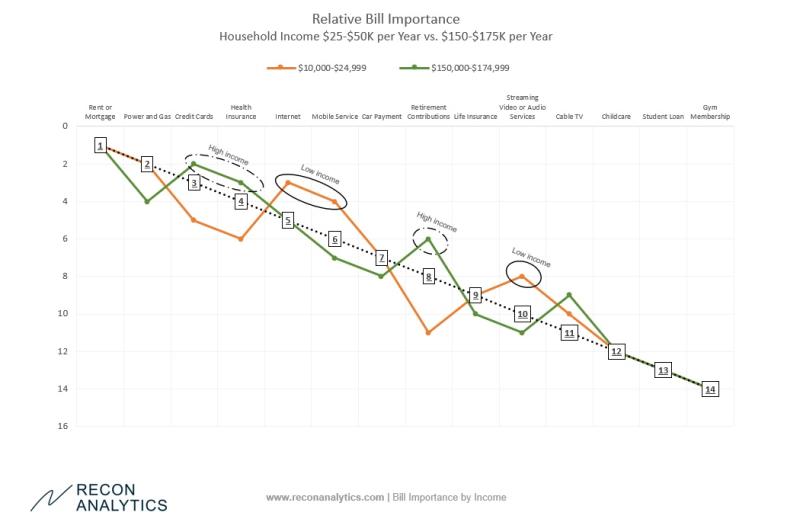Between inflation, rising interest rates and turmoil in the stock market, it’s no wonder fears are rising that another recession might be around the corner. But broadband providers don’t seem all that concerned about how such a turn might impact the sector.
Responding to a question on the subject during a MoffettNathanson investor conference on Wednesday, Altice USA CEO Dexter Goei stated “we believe that this product, the broadband product, is pretty recession-proof…You’d probably give up your hot water, your electricity before giving up your broadband.” He added that while a recession might slow down step ups to higher service tiers, it likely wouldn’t slow down overall activity in the market.
Fixed wireless access service provider Starry seems to hold a similar view. On the operator’s Q1 2022 earnings call, CEO Chet Kanojia argued broadband is now just as essential as food and shelter.
There is some data to back up the idea that customers are increasingly giving broadband precedence among their other spending priorities. According to Recon Analytics’ Mobile Intender Service (RAMIS) and Home Broadband Service (RAHBIS) survey, internet ranks fifth overall in terms of bill importance. It trails only housing payments, utilities like power and gas, credit cards and health insurance. Broadband service was ranked even higher among households with annual income ranging from $10,000 to $24,999, coming in third behind housing and utilities.

“Our data clearly shows that Americans, especially those who are most likely to face economic distress, are prioritizing home internet and mobile service over most other recurring bills they have,” Recon Analytics founder Roger Entner told Fierce. “Due to the importance of mobile and home broadband to Americans, this makes the telecom industry overall more recession proof that other parts of the economy.”
Broadband providers weathered recessions before, notably in 2008/2009. But Entner said the service itself as well as market forces have evolved drastically since then. In the U.S. in particular, he pointed to the rollout of the Affordable Connectivity Program (ACP), which offers a $30 per month subsidy for fixed or mobile broadband service to help low-income consumers stay connected.
The government has said an estimated 48 million households – or around 40% of households in the country – are eligible for the benefit. As of May 16, 11.8 million households had enrolled in the program.
“As long as there are programs like ACP, the future of broadband will be bright,” Entner concluded.
